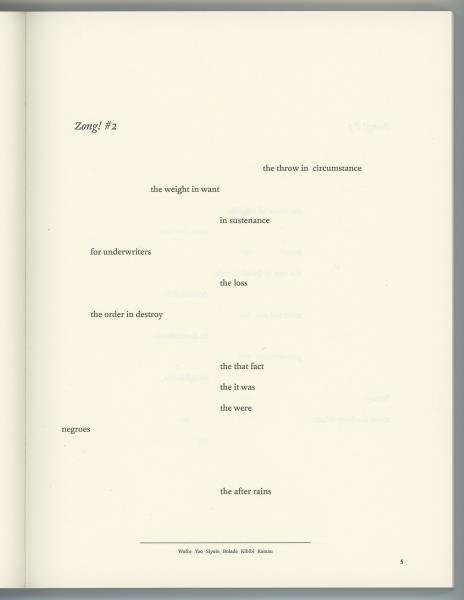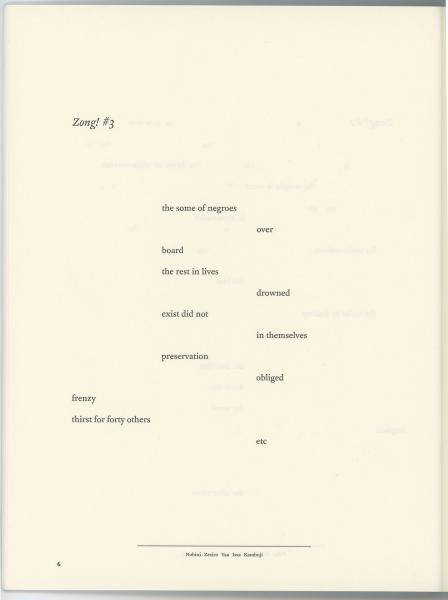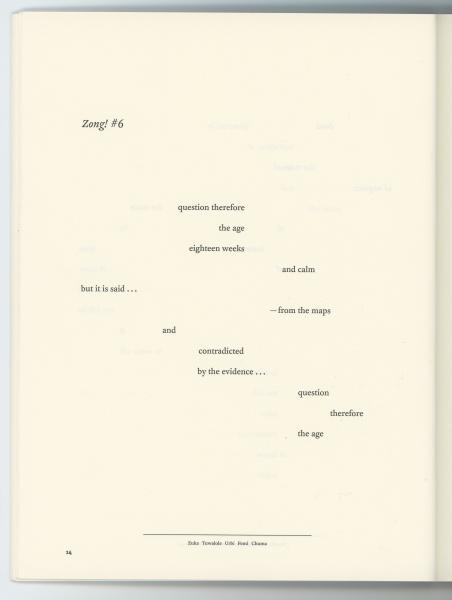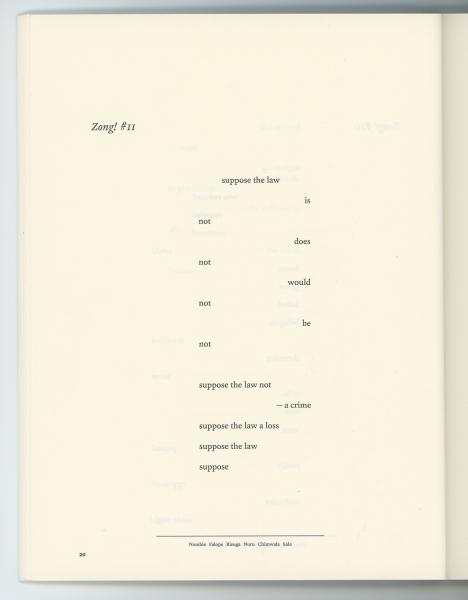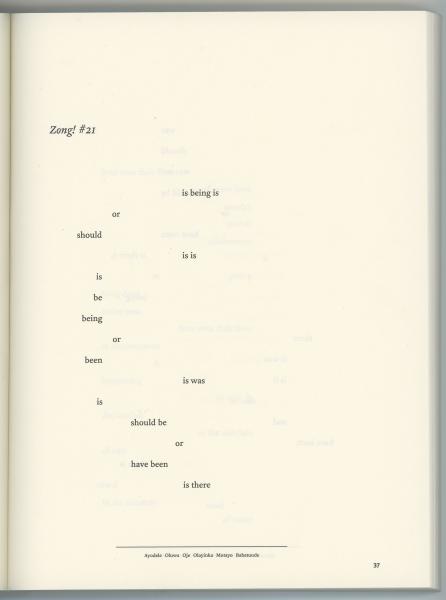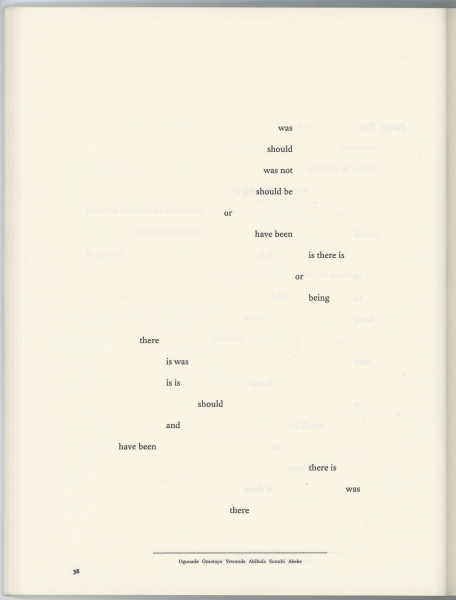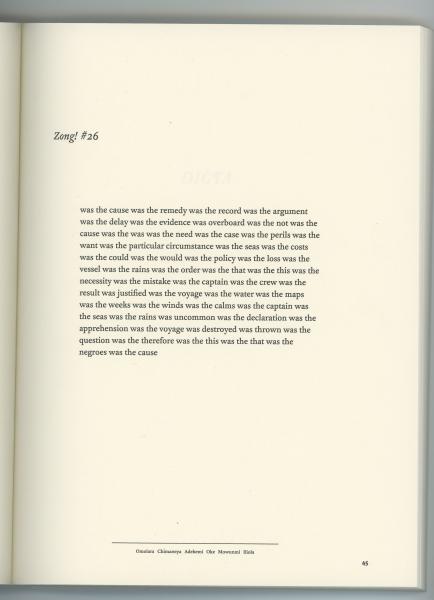Question therefore the age (PoemTalk #118) (original) (raw)
M. NourbeSe Philip, 'Zong!'
From left: Amber Rose Johnson, Alexandria Johnson, and Tracie Morris.
Joined by Alexandria Johnson, Tracie Morris, and Amber Rose Johnson, Al Filreis hosts this discussion of six short poems or sections from the long poem Zong! by M. NourbeSe Philip. The sections discussed are numbered 2, 3, 6, 11, 21, and 26. They can be found, respectively, on pages 5, 6, 14, 20, 37, and 45 of the Wesleyan edition of the book, published in 2008. NourbeSe Philip’s PennSound author page includes several compelling performances of Zong! given over the years. For this PoemTalk episode we listened to a Segue Series reading at the Bowery Poetry Club in New York City given on February 17, 2007, a year or so prior to the publication of the book. Scans of the six sections are presented below. Recordings of the individual sections are linked here as follows: 2, 3, 6, 11, 21, 26.

One of the most jarring things about Zong!, Tracie observes, is the way in which NourbeSe Philip engages with the limitations of language. And so Tracie goes on to describe the horrifying “banality of detail,” presented in shards, a combination of concrete denotation (rhetorical strategy typical of the legal brief) and derealized fragmentation that together get precisely at the evil at the core of the case. Amber Rose admires Philip’s decision to “lock herself into this text,” using only the language that remains from the trial based on the insurance claim. One syntactical remnant resulting from this language experiment is the verb to be (e.g. “is was,” “have been” “is / be / being”) which the group discusses intensely. Alexandria, who studies and enacts performance, and movement in particular, helps us imagine a choreography of various poems’ sections. Realizing the poetically rendered document as, in parts, a satire that can be interpreted spatially — as movements — might enable shocked readers to break through the barrier, such as we experience it, that might inhibit our understanding of lives lived in such extremity. “Exist did not,” both paradoxical and true, expresses well the essence of this particular cognitive challenge.
PoemTalk #118 was engineered and recorded by Zach Carduner and edited by the selfsame Zach. PoemTalk is cosponsored by the Kelly Writers House, PennSound, and the Poetry Foundation. We wish to express gratitude to Elizabeth and Nathan Leight for their support of PoemTalk and of KWH’s Digital Poetries Fund.
In the next episode of PoemTalk, Firoozeh Kashani-Sabet, Mahyar Entezari, and Leonard Schwartz will join Al to talk about two poems by the Persian-language poet Fatemeh Shams.
Click on each page scan to view a larger, readable view.
November 17, 2017
TAGS:
